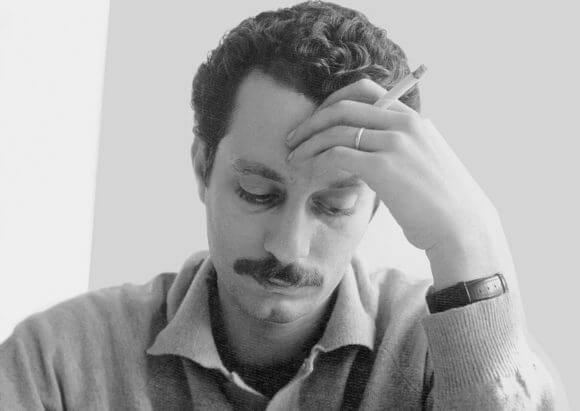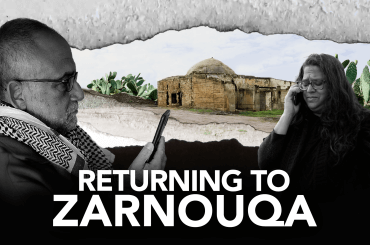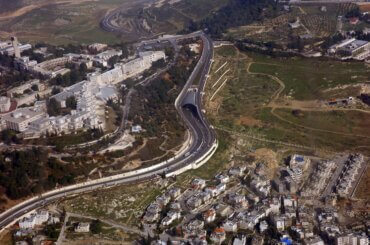This academic year I am teaching two Palestinian novels and a couple of short stories, among other (post)colonial texts. We are examining the political consciousness, or lack thereof, of the colonized characters and their contradictory efforts to overcome psychological and social alienation through individual projects or escapes to the collective processes of armed struggle and revolutionary transformation. However, the selection of the writers Ghassan Kanafani (Palestine), Ndjabulo Ndebele (South Africa), Sembene Ousmane (Senegal), and Nuruddin Farah (Somalia), among others, pose a critical question concerning the definitions of (post)colonial and resistance literature, and its attendant issues of the development of anti-colonial nationalism and national identity.
My choice of these specific writers is deliberate, as I am teaching Palestinian students who are refugees and who cannot, for obvious reasons, separate their struggle from the futuristic vision offered by the writers, especially that provided by Ghassan Kanafani. From the deaths of the three Palestinian refugees as they attempted to get smuggled into Kuwait in Men in the Sun, and the child’s survival tactics in “The Land of Sad Oranges” and “The Little One Goes to the Camp,” through the struggle of Hamid with the Israeli soldier in All That’s Left to You and Diwana’s suicide in Ousmane’s “Black Girl,” to Said S.’s radical enlightenment at the end of Return to Haifa — all these finally culminate in the story of the narrator’s mother, in Farah’s “My Father, the Englishman and I,” her challenge both to traditional social conventions and to colonial repression. These writers elaborate on an emergent conquest of personal and historical alienation through collective revolutionary work.
We analyze the paradigmatic narrative pattern of the principal characters’ alienation and their illusory and subjective responses to that issue through personal involvement and/or an effort to advance their class status. The exclusive focus on character and action in these (post)colonial texts exhibits the protagonists’ overdetermined personal itineraries and manifests a critical analysis of the material conditions and historical factors that inform the existentially characterological choices.
The necessity of reading Palestinian literature, especially at this point in time, emanates from the importance of writing a Palestinian narrative. Most Palestinian literature is what Barbara Harlow and Kanafani, before her, would call “Resistance Literature.” Unfortunately, our familiarity and knowledge of this kind of literature in a post-apartheid and post-Cold War world have been determined by what the market offers us. All the above-mentioned fictions are stories of the struggle of (wo)men to free themselves from certain inhuman forms of exploitation, oppression, and persecution; they are undoubtedly related to the ideas, values, and feelings by which colonized (wo)men experience their society and their existential, political, and historical situation. An understanding of Kanafani’s novels and short stories, for example, requires an understanding of both the past of the oppressed Palestinians and their present more deeply: an understanding that contributes to their liberation and human liberation in general. It is not difficult for any reader of these two novels, Returning to Haifa and All That is Left to You, to notice a gradual, conscious, deliberate movement towards a clear dynamic reality: a new reality that makes us see what we have never seen before that moves us into a new order of perception and experience altogether. In other words, both novels have a significant artistic influence that emerges from a confrontation with reality rather than an attempt to escape from it.
Complicated themes and questions recur throughout these (post)colonial fictions: exile, marginalization, death, and history. Such questions are, indeed, related to the role of the writers themselves, as self-conscious committed writers revealing the weakness of some colonized subjects in preferring the search for material security to the fight to regain their identity and land (Men in the Sun, Black Girl). In other words, these texts explore the dialectical relationship between the inward and the outward realities of these subjects.
Having said this, I also understand that (post)colonial literature is not exclusively limited to its anti-colonial forms. As much as we in Palestine are reading and teaching the above-mentioned writers, we also find ourselves struggling to deal with the likes of the racist Trinidadian-British writer, V.S. Naipaul, who makes it clear, especially in the novel we ask our students to read, A Bend in the River, that “The world is what it is; men who are nothing, who allow themselves to become nothing, have no place in it!” Naipaul again writes that “it isn’t that there’s no right and wrong here. There’s no right,” and that therefore “Africa has no future (without the colonial master!)”
For writers like Naipaul, Africans (and other colonial subjects) are not worthy human beings like white westerners; “they are only Africans,” not agents of change: “[Black Africans] had become what the world outside had made [them;] [they] had to live in the world as it existed.” This is why the West has to intervene as part of its “civilizing mission.” This rationale, this time, is being propagated by a Black/brown man! The interesting part, within this context, is that our students are familiar with Edward Said’s argument that “[e]very empire… tells itself and the world that it is unlike all other empires, that its mission is not to plunder and control but to educate and liberate.”
Compare this to Ndjabulo Ndebele’s characters in Fools, Ghassan Kanafani’s siblings in All That is Left to You, and Sembene Ousmane’s maid in “Black Girl,” all of whom resort to radical solutions in response to “The Horror! The Horror!” (to quote Joseph Conrad) of savage settler colonialism and apartheid.
No need to dwell on the preference of Palestinian students when asked to write about their favorite texts this academic year!


